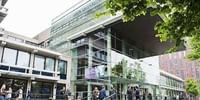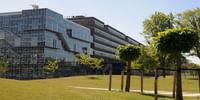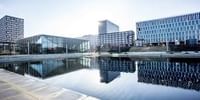Art is an expression of the human spirit. The study of art deals with cultural, social, religious, political and aesthetic meaning in the time it was created, the present and the eras in between. Think of how the Greek mythology of Narcissus ? who has been portrayed in countless sculptures and paintings over the ages ? was used by Freud to name a psychological disorder and is today used by politicians to symbolise the flaws of modern society. And think of how the destruction of art, be it by Byzantine iconoclasts, sixteenth-century Dutch protestants, or present-day adherents of IS, teaches us that the emotional and political significance of art goes far beyond the loss of objects.
The Master in at specialisation welcomes students with interest in all forms of art and visual culture. Our own research primarily focuses on Europe and ?its worlds?, including how European artefacts interact with and differ from the rest of the world. Our research studies artefacts in the broadest sense, ranging from the more traditional forms as sculptures, paintings and architecture to modern ones as film, digital art, the performing arts and even fashion. All our research is performed in collaboration with scientists from other fields within the Institute for Historical, Literary and Cultural Studies? (HLCS). We are joined in twelve themed research groups.
Career prospects
During the Master?s programme you will gain a broad perspective on the humanities in general because of the collaboration between the specialisations?of Historical Studies, Literary Studies, and Art and Visual Culture. Through your personal Master?s research, you will also have concentrated on a very specific phenomenon in your own field. This combination of broad and specific focus will open a lot of doors for you. Our research programme has produced graduates that are appreciated by employees for their research skills as well as their insightfulness and analytical skills, and who have not only learned how to delve into large quantity of data and master it but also how to place their results in a larger context.
In short, at the end of the programme you?ll:
- Have acquired heuristic research skills at an advanced level.
- Have gained general knowledge of leading perspectives, theories, concepts, and paradigm shifts in the humanities and advanced knowledge specifically for own field.
- Be able to engage in the public debates regarding issues in the humanities.
- Have acquired English academic writing skills and have practiced writing a publishable scholarly article and a proposal for a PhD project.
- Have started to build up a professional international network.
Want to learn more??
Would you like to learn more about this programme and Radboud University? Join us for our Master?s Open Day on 16 March 2019! To learn more and register for this exciting event, visit www.ru.nl/masters/openday.












